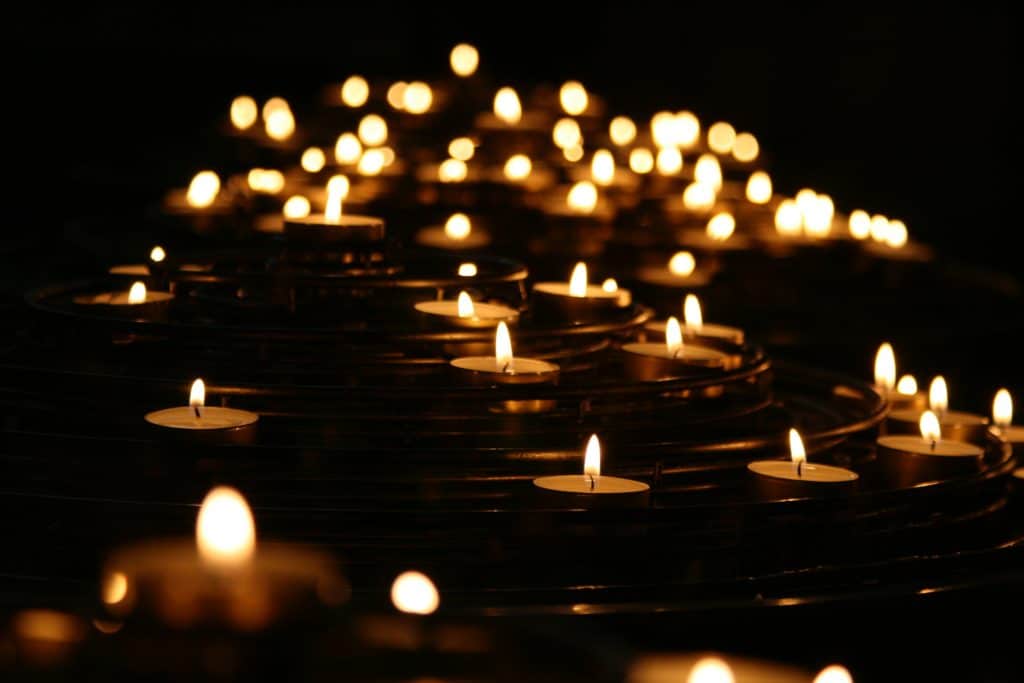Grief never ends. But it changes. It’s a passage, not a place to stay. Grief is not a sign of weakness, nor a lack of faith. It is the price of love.
Unknown Author

Grief and mourning are the ways in which we assimilate significant losses. Loss refers not just to the death of a loved one but includes life events such as the end of a relationship, job loss, homelessness, moving home, infertility, illness and so on. When we experience loss, we feel deprived of something we perceive as meaningful, something or someone we feel a strong attachment to. In my work with clients, I’ve been witness to a great deal of loss. I’ve sat with people whose grief was so heavy and raw, it seemed to take over the whole room. Through these experiences with my clients, I’ve learnt that whilst grief changes over time, it doesn’t truly end. The intensity of our feelings changes, however, as slowly we learn to live with the loss, reinterpreting and understanding it at different times in our lives.
There’s no typical response to grief. Everyone’s way of coping is unique, impacted by a vast range of factors. These include our support system, cultural norms, coping mechanisms, personal outlook on life and death, the nature of our relationship with the deceased and the value we placed on whatever or whomever was lost.
Despite our differences in the way we respond to loss and grief, there are a number of emotions and experiences people can expect to go through. Elisabeth Kubler-Ross, a Swiss psychiatrist, came up with a framework she called the five stages of grief, designed to help people learn to adjust to loss. These five stages of grief are: denial, anger, bargaining, depression, and acceptance. These stages are not linear, nor are you expected to go through them in a sequence, although you may. You may not even experience all of them, or you may jump back and forth between stages. What this model provides is a framework for anyone experiencing grief to identify and understand what they’re feeling. This can help support you through what may seem like a roller coaster of different emotions. I’ll now go into more detail on the five stages of grief:
- Denial
Although it often has negative connotations, denial is the psyche’s way of letting in only what you can handle, allowing you to pace your grief. On hearing of the death of a loved one, you may wonder if there was a mistake or anticipate that, somehow, this person will return. You may feel numb, continuing to go about your life as if nothing happened. Life may suddenly make no sense at all, causing you to feel confused and unsure of how to go on in such circumstances.
I once spoke with a lady who lost her husband, who shared with me that in the few months after his death, she continued to set his place at the dinner table. She recalled having felt more pain not setting his place than seeing his plate and cutlery unused at the table, often telling herself as she cleared the table, ‘He got caught up at work’. It was only as she started to move beyond denial that she could bear the pain of seeing the table set without a place for her husband.
- Anger
Your anger when experiencing loss may seem to have no limits, extending to your family, friends, doctors, the person who died, yourself and God. You may feel abandoned and let down not only by the person you lost but by your faith, the medical profession, and your community. You may wonder ‘Why me?’ or ‘Why do bad things happen to good people?’. Your ideas about safety, justice or the fairness of life may be shattered. Beneath such anger is intense pain and a myriad of overwhelming and confusing emotions. Anger has a purpose, though, as it gives you somewhere to direct your emotions and pain, binding you to the reality of what happened.
- Bargaining
This is the stage of false hope, where you’ll do anything for life to return to how it was before the loss. For those who believe in God, bargaining may take the form of pleas such as ‘If you bring my wife back, I’ll change my life and only do good’. You’ll become lost in ‘if only’ or ‘what if’ statements, wishing you could go back in time and catch the illness sooner or prevent the accident.
- Depression
As you start to accept the reality of the loss, you’re likely to start to feel immense sadness, emptiness and hopelessness. You may be unsure of how you can go on without whomever or whatever was lost. People often define themselves by the roles they play – wife, mother, sibling, daughter. The loss of someone close can make us question our purpose or identity, causing life to feel meaningless or empty. It’s natural at this stage to withdraw from people and life for a little while, giving yourself time to adjust to life without your loved one. When you grieve the loss of a loved one, you’re grieving your past, the present and the future you were unable to enjoy with them.
- Acceptance
At this stage you accept that your loved one is gone and life as you knew it has changed forever. Acceptance doesn’t mean you’re okay with the loss. At the beginning, it may simply mean having more good days than bad, as you slowly start to adjust to life without your loved one. You may have to re-organise roles, take on new responsibilities and re-assign roles to others. It’s very common, for instance, that when a parent dies, an older sibling takes on the role of the lost parent.
As you start to accept your new reality, you start to build new connections, form new relationships and allow yourselves to enjoy life again. This can be a confusing time as you may feel you’re betraying your loved one if you feel happy again or feel yourself moving on. The sadness may seem like the only thing connecting you with your loved one. It will take time to navigate these confusing and mixed emotions and you will need the support of those around you to make it easier.

Working through grief
I’m sure you’ve all heard the popular saying, ‘Time heals all wounds’. When it comes to grief, I think it’s more accurate to say that in time, wounds can heal, but in order to heal, you need to do the work. In order to facilitate this journey through grief, I’d like to make some suggestions to help ease the process:
- Although it may be tempting to keep busy so you don’t have to sit with your pain, try to spend 10-15 minutes alone every day. This could be in a place which reminds you of your loved one, such as a favourite room in the house, or by the sea. Allow yourself to feel whatever it is you’re currently feeling, whether it be sadness, anger, or confusion.
- Write down how you’re feeling. Journaling can be a great way to channel feelings in a safe and contained manner. It can also create some structure to what may seem like an avalanche of confusing and painful emotions.
- Write a letter to your loved one, telling them how you feel, what you didn’t tell them before they passed away, and how much you love and miss them. Like journaling, this can help you process complex and painful emotions in a safe manner.
- Create rituals to honour your loved one. I had a friend who lost her sister, who used to go to a coffee shop her sister loved, on the same day each month, and have her sister’s favourite drink. Doing something they had enjoyed doing together helped her feel more connected to her sister and allowed her to remember the fun times they shared.
- Take care of your health. When life seems so empty and painful, the last thing you may want to do is eat healthy food and exercise. You may be more inclined to drink excessively, over-work or not eat enough. Failure to take care of yourself will have a negative impact on how you feel, causing you to take longer to feel better. Therefore, try your best to maintain or adopt healthy habits.
- Talk about your loved one. Reminisce about happier times with those people who also had a relationship with the person who passed away. By doing this you’re honouring and celebrating the time you spent together, with the support of others who may understand what you’re going through.
- Hold onto a physical memory of your loved one. You may be fortunate enough to have a favourite piece of clothing or piece of jewellery which belonged to your loved one. Having such items may help you feel closer to the person you lost.
- Live a life your loved one would have wanted you to live. Many people are unable to start living again or feeling happiness, fearing that if they let go of the sadness, they’ll start to forget the person they lost. Honour your loved one by living fully, knowing that doing so will not erase the bond and love you feel towards the person you lost.
- Be patient with yourself. Grief takes time so don’t beat yourself up for not getting over things quickly enough. Remind yourself that whatever you’re feeling is natural and will subside in time.
- Reach out to others. It’s important you talk about how you’re feeling, or simply spend time with people who care for you.
- Look for new hobbies or interests. This is a way for you to finding joy and meaning in life once again. You could start a new sport, join a gym, do yoga, go swimming, start painting, do an evening class, and so on.
- Spend time in nature. A great deal of research exists which confirms the healing power of nature. You could go for a walk by the sea, have a quiet swim, or spend time in an area where there are trees and greenery.
- Since loss can leave us feeling as if our lives have been shattered, it’s important to remember what hasn’t changed. Take comfort in what’s remained stable, such as family and friends, our home, a stable job, and so on.
- Seek professional help if you feel you need additional support through the grieving process. A therapist or counsellor can provide you with a safe, nurturing environment in which to express whatever you’re feeling.
I’d like to leave you with a quote which I believe really honours the experience of grief and the strength of the human spirit to keep going amidst pain and suffering:
It takes strength to make your way through grief, to grab hold of life and let it pull you forward
Patti Davis






